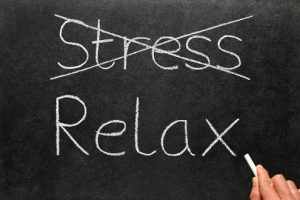What is stress?
Stress is the reaction our body has to a threat or demand. Whether the cause is real or
imagined, the body can respond in worry or fear. Stress can have positive effects to help you
avoid danger, but it can also have negative parts if it lasts too long, it can harm your health.
Stress can impact your thoughts, emotions, behavior, health, and relationships. Stress can vary
from person to person and can be different depending on stressor (cause of the stress).
What are the causes of stress?
Stress can be different for everyone, but some examples are pressures at school/work,
physical/mental problems, financial worry, relationship problems, death of a loved one,
changes in housing and more.
How to recognize stress?
Stress can show up in many different forms and can be unique to each person. Some examples
of common stress symptoms include headaches, sweating, insomnia, difficulty concentrating,
frequent colds, nervous habits, excessive anxiety or worry, reduced work efficiency, social
isolation, fatigue, depression and more. It is important to learn to recognize if you are stressed
and what your symptoms may be. Then it is necessary to take action to reduce your stress.
How to reduce stress?
There are many ways that you can work to eliminate your stress. This may be unique to you
and your body. Some ways can include exercising, reducing caffeine, talking with someone
about it, listening to calming music, staying on top of your duties and not procrastinating,
taking part in something that makes you laugh, hanging out with family and friends, deep
breathing and more.
If you are having any abnormal health symptoms it is always advised to consult with your
healthcare provider. For more information about stress and for the sources check out these:
https://www.healthline.com/nutrition/16-ways-relieve-stress-anxiety
- Home
- COURSES
- All Courses
- Activity Director
- Additional CEUs
- Career Pathway
- CASAS Reading Test
- Health Unit Coordinator
- Home Health Aide
- Medical Terminology
- Medication Aide
- Medication Aide Update/Continuing Education
- Microsoft Word
- NURSE AIDE
- CNA Refresher
- Paid Nutrition Assistant
- Pharmacy Technician
- Restorative Aide
- Quick Courses
- Social Service Designee/Aide
- Train the trainer
- RESOURCES
- About
- Classroom Login
- Billing Login



